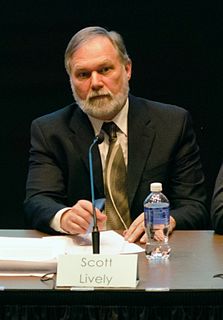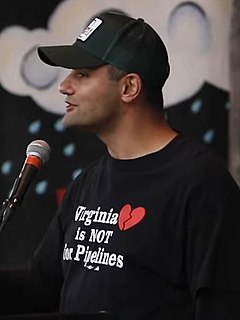A Quote by Samuel P. Huntington
We really only came around to accepting and integrating the propositional dimension of identity into a concept of ourselves at the time of the American Revolution.
Related Quotes
I think that most people don't think in terms of an American revolution, they think in terms of a Russian revolution, or even a Ukrainian revolution. But the idea of an American revolution does not occur to most people. And when I came down to the movement milieu seventy-five years ago, the black movement was just starting, and the war in Europe had brought into being the "Double V for Victory" [campaign]: the idea was that we ought to win democracy abroad with democracy at home. And that was the beginning of an American revolution, and most people don't recognize that.
We've seen the transformation of America, when at the pinnacle of its Christianity was probably in the 1950s. Ever since then it has been declining, why? Because of the sexual revolution. Where did the sexual revolution come from? The sexual revolution came from the activists of the American gay movement.
You bring up identity politics and I think that this is really causing a divide in the American left where we're rallying too much around identities. We should celebrate our heritage, we should organize by identity, but we shouldn't advocate and push for certain identities. We shouldn't talk about women suffrage, or plight of Muslims, or refugees; we should talk about our common American values.
A revolution is bloody, but America is in a unique position. She's the only country in history in a position actually to become involved in a bloodless revolution. The Russian revolution was bloody, Chinese revolution was bloody, French revolution was bloody, Cuban revolution was bloody, and there was nothing more bloody then the American Revolution. But today this country can become involved in a revolution that won't take bloodshed. All she's got to do is give the black man in this country everything that's due him, everything.
For us, mind has nature for its premise, being nature's truth and for that reason its absolute prius. In this truth nature has vanished, and mind has resulted as the idea arrived at being-for-itself, the object of which, as well as the subject, is the concept. This identity is absolute negativity, for whereas in nature the concept has its perfect external objectivity, this its alienation has been superseded, and in this alienation the concept has become identical with itself. But it is this identity therefore, only in being a return out of nature.
But what do we mean by the American Revolution? Do we mean the American war? The Revolution was effected before the war commenced. The Revolution was in the minds and hearts of the people; a change in their religious sentiments, of their duties and obligations ... This radical change in the principles, opinions, sentiments, and affections of the people was the real American Revolution.
In comparison to the French Revolution, the American Revolution has come to seem a parochial and rather dull event. This, despitethe fact that the American Revolution was successful--realizing the purposes of the revolutionaries and establishing a durable political regime--while the French Revolution was a resounding failure, devouring its own children and leading to an imperial despotism, followed by an eventual restoration of the monarchy.
Time is clearly not our natural dimension. Thus it is that we are never really at home in time. Alternately, we find ourselves wishing to hasten the passage of time or to hold back the dawn. We can do neither, of course, but whereas the fish is at home in water, we are clearly not at home in time--because we belong to eternity.
It’s a revolution. But it’s the sort of revolution that no one will notice. It might get a little shadier. Buildings might function better. You might have less money to earn because your food is all around you and you don’t have any energy costs. Giant amounts of money might be freed up in society so that we can provide for ourselves better. So it’s a revolution. But permaculture is anti-political. There is no room for politicians or administrators or priests. And there are no laws either. The only ethics we obey are: care of the earth, care of people, and reinvestment in those ends.






































